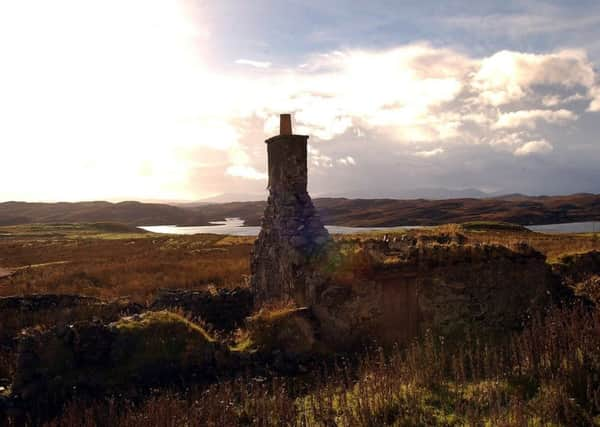Kenny MacAskill: '˜Action is needed to assuage the collective pain etched deep in the Scottish soul'


Like many, my father was born there but brought up elsewhere. However, it was the island he considered he came from, not the village in the shadow of a central Scotland pit that he grew up in.
In that he wasn’t alone, as the islands, as with other rural parts of Scotland, catch hold of their emigrant sons and daughters; and keep hold of their descendants. Whether they now live in a tenement flat in a city or a house in a small town, the call of the land is heard and more often heeded than ignored.
Advertisement
Hide AdAdvertisement
Hide AdThere’s a pride in the natural beauty of both mainland and island Scotland but also a deep-rooted pain felt in its history.
The land issue is burned deep in the soul of every Scot, an innate belief that an injustice occurred and that what was our ancestors’ birthright was stolen from them. The look-but-don’t-touch situation that existed in many parts of Scotland enraged those who wanted to wander the lands of their forebears, but were excluded.
Salt was rubbed in the wound when many of those lording over their manor or estate were absentee landlords with either little relationship with the land or dubious title to it. Robber barons, as the late great Tom Johnston described them, and as the Green MSP Andy Wightman has written, the poor had no lawyers.
Compounding that was the knowledge that some were cleared from their native land and forced to find shelter across the seas. It’s been written about extensively and eloquently from John Prebble to Jim Hunter and still angers to this day. The visions of destitution and pain are etched in the collective history of the Scots. It has affected other nations as emigrant Scots have carried it with them to their new homes.
John McKenzie, the radical lands minister in New Zealand at the end of the 19th century, broke up large estates to form that nation of small farmers that in many ways still exists today.
That was done largely down to the misery he had seen inflicted when growing up in Alness and streams of Highlanders cleared from Sutherland made their way to the coast, to depart from the land of their birth. He vowed to ensure that those sins wouldn’t be inflicted in his new home.
Many of the wild glens we see now were far from wildernesses in previous times. But the people and their cattle were moved for sheep or sporting estates, and the very nature of the terrain has changed.
It may be years ago, but the hurt is felt down through the generations and injustices continue, as young people are unable to obtain a house in their native village, never mind land on the ground they’ve grown up upon. Some of it is historical fact, other aspects are mythology, but all create a cocktail that is imbibed by most Scots and leaves a bitter taste to this day.
Advertisement
Hide AdAdvertisement
Hide AdScotland isn’t alone in that collective history that can become partly mythology. And while some aspects rightly needed challenged or corrected, the story is important all the same.
The Irish have the great famine and their forced emigration, especially to the USA. Generations have seared in their very soul as a consequence. It partly defines their relationship with Britain, given the deliberate cruelty of it, even if it was more due to incompetence than deliberate policy. But, it also drives huge contributions to famines elsewhere around the globe, from generations who’ve never known hunger but feel it gnawing in their genes.
The USA has the frontier spirit. It’s imbued by all irrespective of where the new immigrants have come from or when they arrived. Generations that blazed a trail or rode in a wagon moulded a society and left a legacy that lingers to this day, in attitudes to guns and the welfare state.
I recall the village my grandparents grew up in, which was next to some of the best salmon waters in Europe and yet access was denied as they neither had title to the lands they’d grown up in or the wherewithal to meet the significant charges imposed by latter day owners.
Lewis became the fiefdom of James Matheson, who had made his money in the Far East and partly through opium. As Justice Secretary, I recall meeting my Chinese counterpart and both apologising for Matheson’s actions and noting that if it occurred today, the land would be confiscated under Proceeds of Crime legislation. Instead families were cleared and the land has been sold on many times since.
The Land Raiders that sought to fight back are now at long last remembered with memorials. But the bitterness remains. I recall my grandmother, a very kind and Christian lady, being scathing about those who owned the land and waters that she and her people were restricted from.
Of course, progress has been made in access and credit goes to several recent administrations of different political hues. But it’s both long overdue and still doesn’t go far enough. When the Scottish Parliament reconvenes after the summer recess it will continue what seems almost a perennial debate about how to try and right that wrong, when so many years have passed and so many different owners have acquired the land.
It’s complex as the land has been sold on, and the world in which we live has changed. But, further action is needed to assuage the collective pain and repay a historic debt etched deep in the Scottish soul.